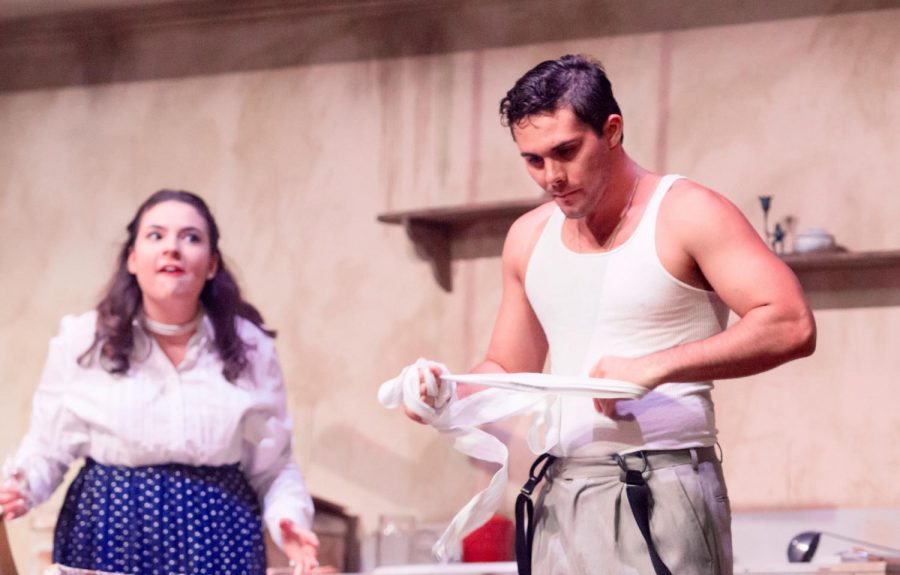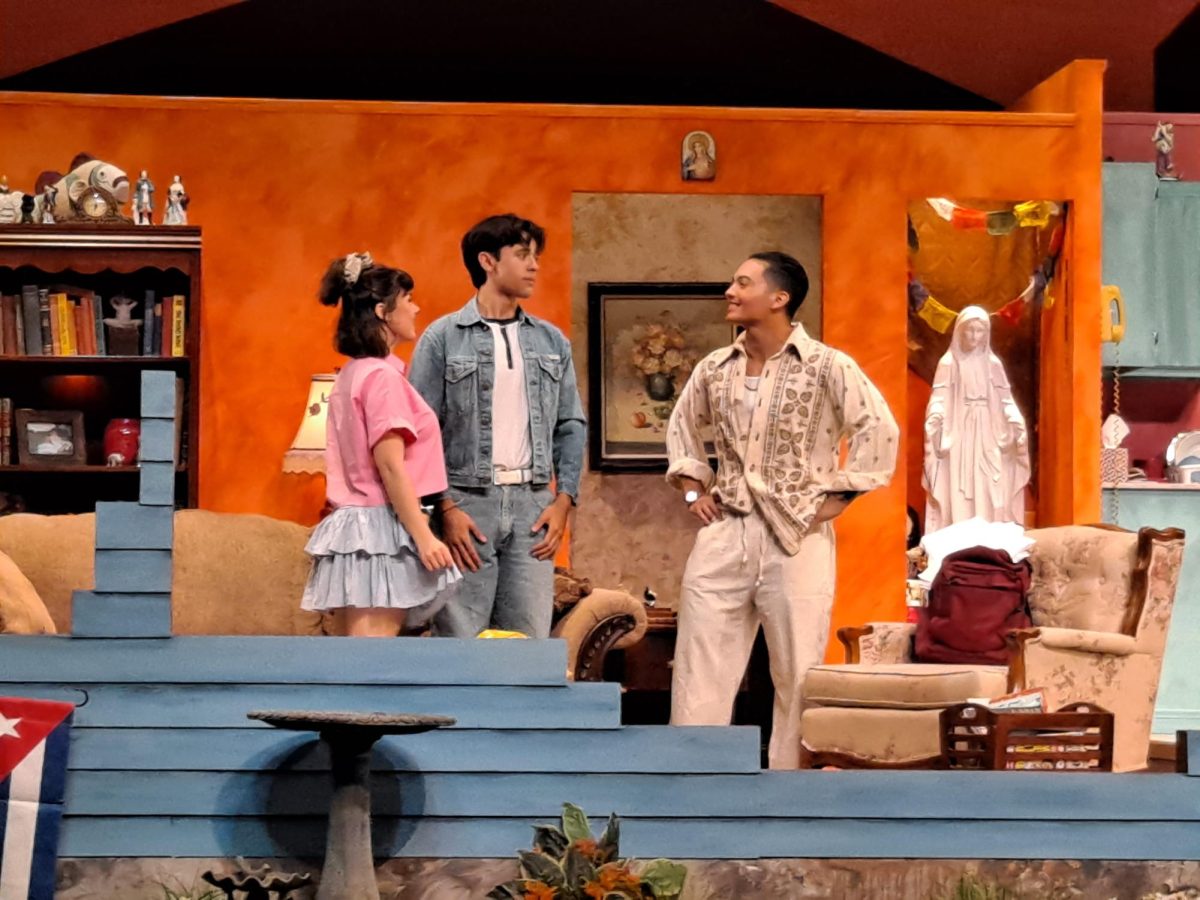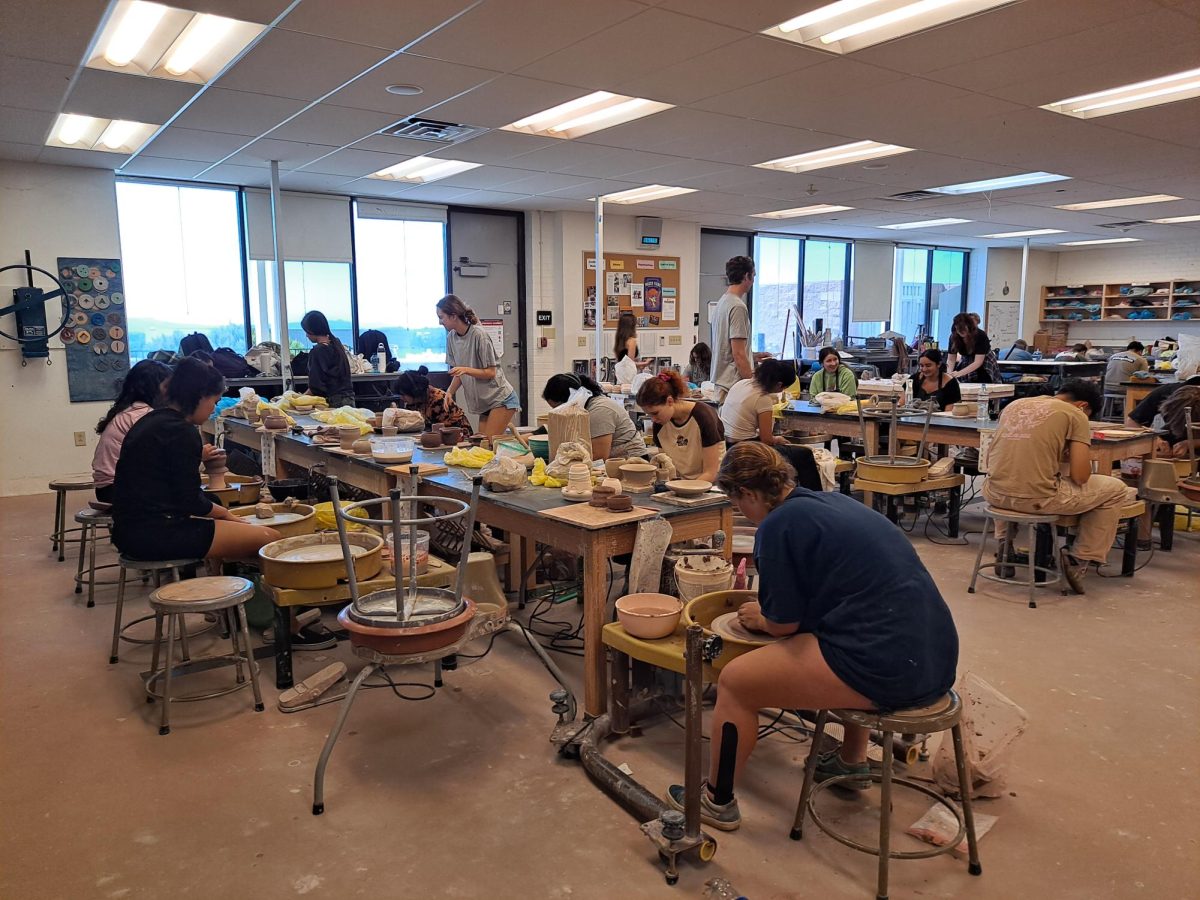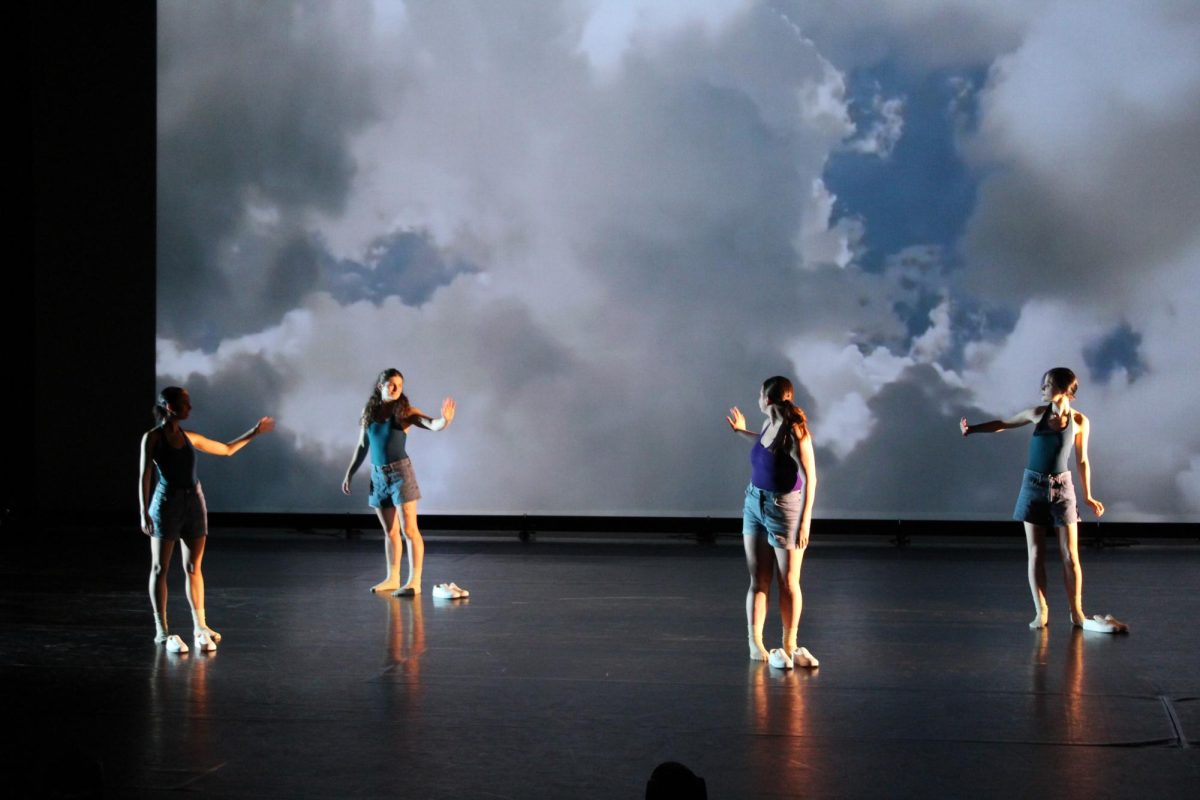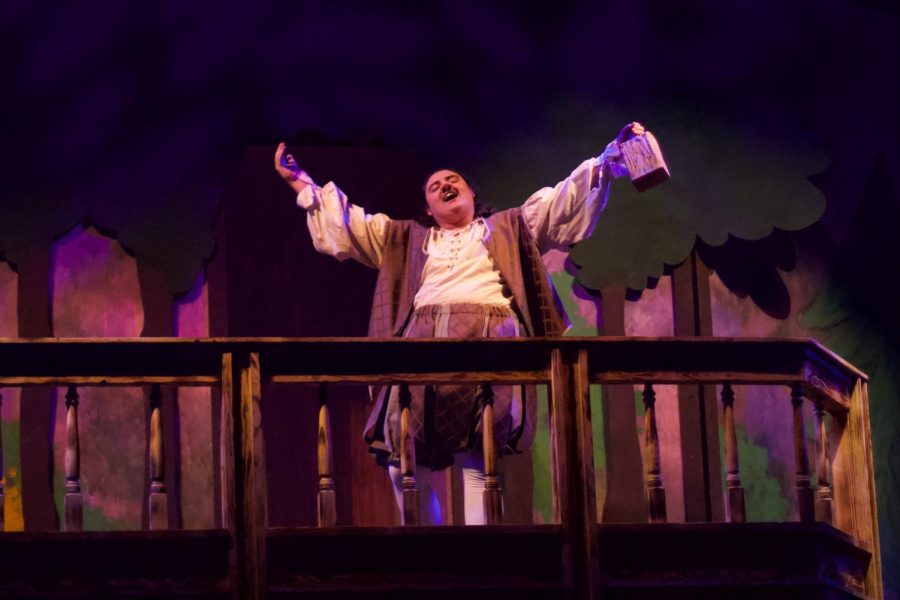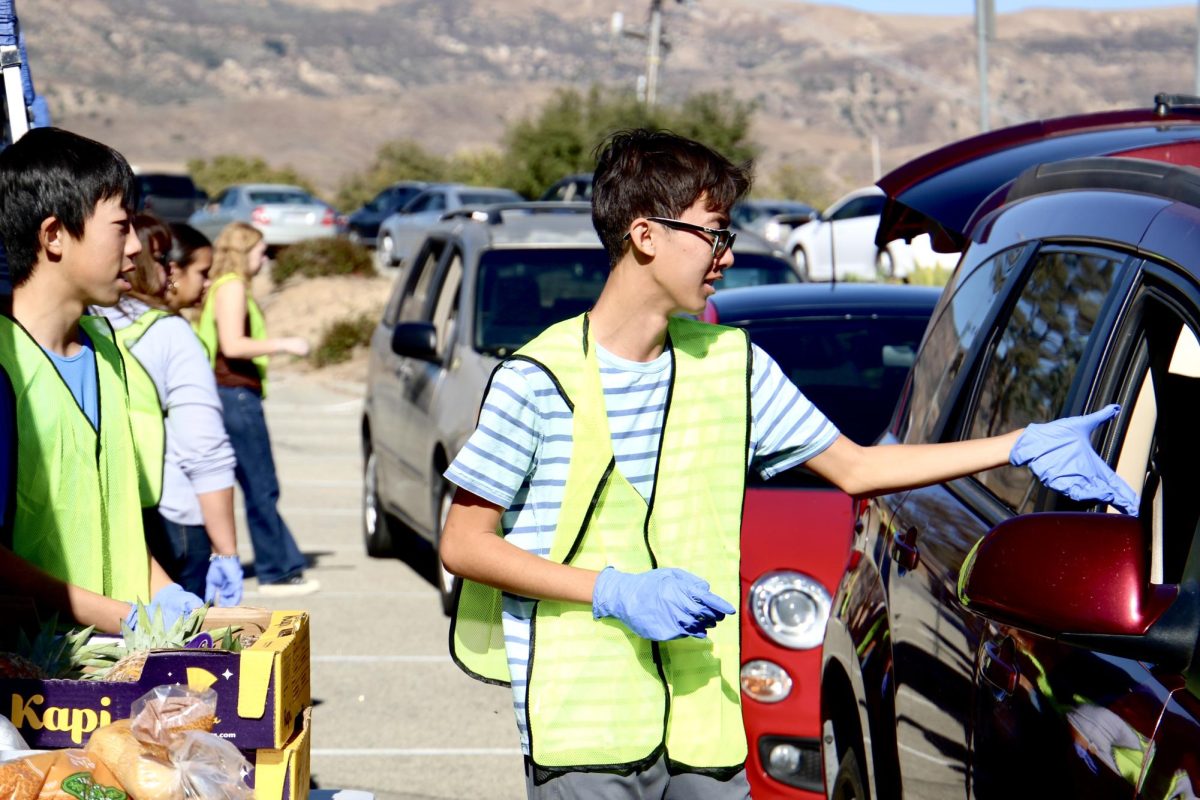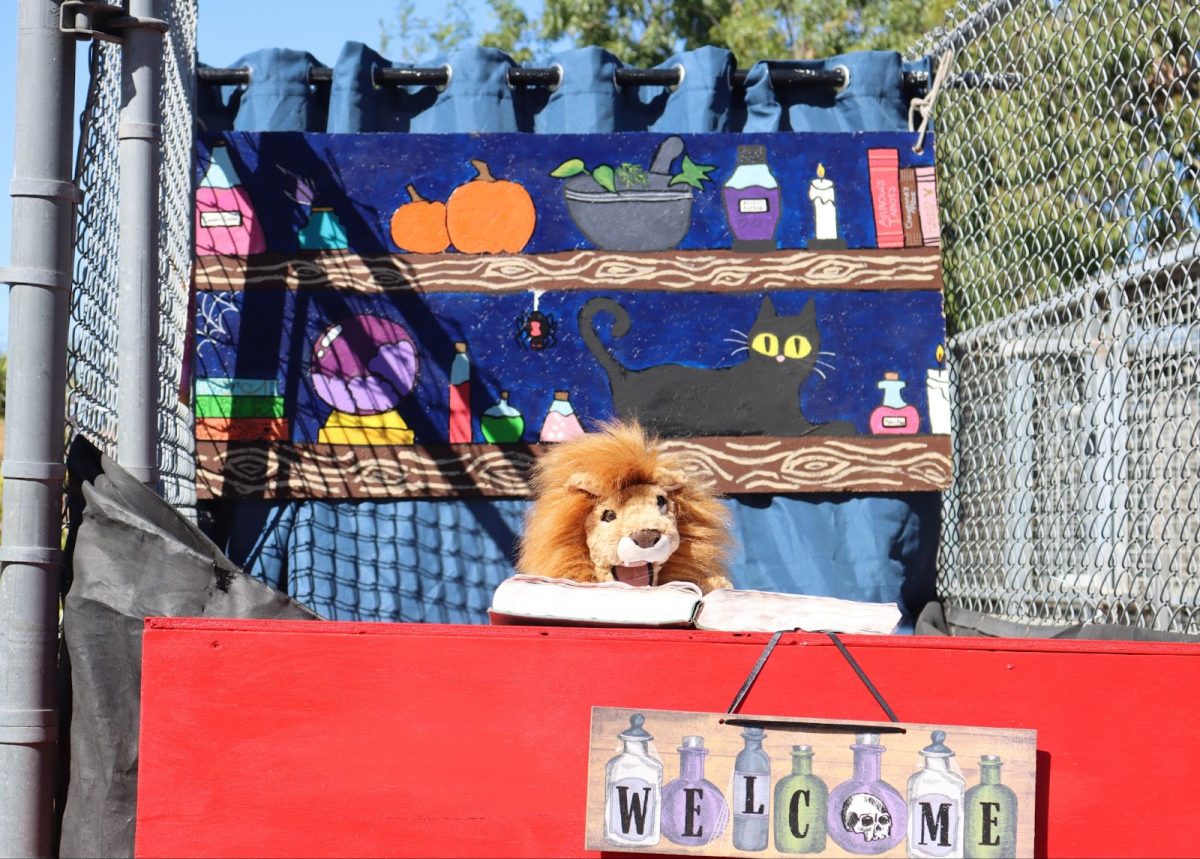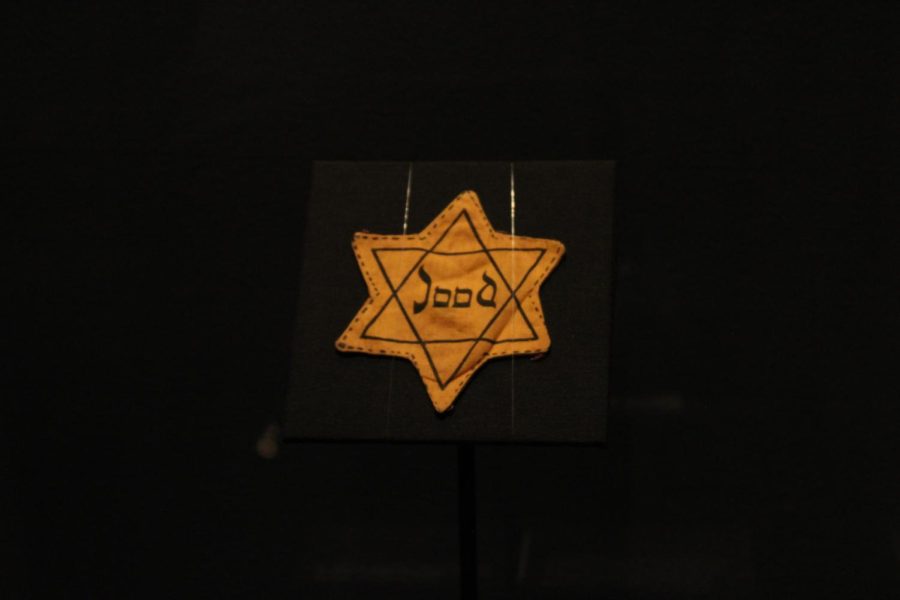Tennessee Williams’s classic drama “A Streetcar Named Desire” premiered at Moorpark College’s Performing Arts Center on October 12.
This iconic Pulitzer prize winning play of raw emotion, conflict and loss transforms the main stage into the French Quarter of New Orleans, complete with live jazz music and a sexually charged haze. To realize this play, the production relies on the vision of the director, the performances of the actors, and the technical know-how of the technical workers behind the scenes.
“A Streetcar Named Desire” reveals the depth of the main character, Blanche du Bois. This Southern Belle lives a misguided life because of her romantic illusions, which lead her to reject life’s realities. When Blanche goes to live with her sister, Stella, and her husband Stanley in New Orleans, pressure to face reality mounts as Stanley leads her to a revelation of tragic self-delusion and madness.
Moorpark College’s Fine and Performing Arts Professor, John Loprieno has harbored a desire to put on “Streetcar Named Desire” for a number of years.
“I always knew I wanted to do this play, but several years ago there was a 75th anniversary celebration for Tennessee Williams. So the rights for his plays froze,” said Loprieno.
The Fine and Performing Arts Department works on a two-year cycle of plays to mix up genres. The contemporary drama genre was slated for this fall, and since ‘the freeze,’ Loprieno jumped on this opportunity to finally put on the play.
“‘Streetcar’ is an amazing example of American drama at its greatest,” said the director, Loprieno. “There is a reason why colleges and universities continue to produce Tennessee Williams on a regular basis.”
To successfully perform this 1947 Pulitzer-prize winner, the level of complexity and deep psychological characterization required is widely considered a dream assignment for actors, students and professionals alike. Moorpark College’s eight-week process of rehearsals is no exception to this.
“Everyone is finding their level of work required for their character, and for their own interior psychological analysis of their character’s makeup, and how they can apply it to their characters” said Loprieno. “You can’t play [these roles] without looking at relationships like brother-sister, husband-wife, and family relationships.”
Just two weeks out of this eight-week process is designated for technical rehearsals. It would be easier if there were three to four nights each to rehearse sound, lighting, costumes and makeup, said Loprieno. But on a semester schedule, that’s impossible.
“It takes a lot of coordination. We have just one night to rehearse lights. The wheels fall off, and by the end of the night we have to put them back on,” said Loprieno. “The wheels fall off again the night of costumes, hair and makeup, and we have to put the wheels back on, and start all over again the next night on sound effects.
“That’s the challenge of doing a play that’s rooted in realism, and the genius of Tennessee Williams. It sounds like it’s a simple thing, but it’s a logistical nightmare,” said Loprieno. “[It’s also] the training that actors need—the cornerstone of learning, how to incorporate all these production details.”
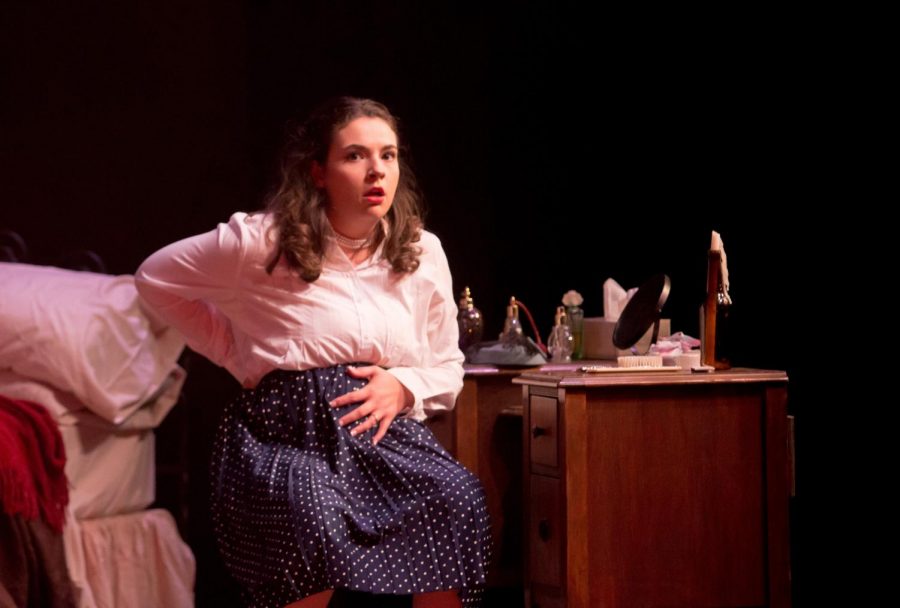
The process of putting on a show of this caliber and magnitude is where training happens on collaborative level as well.
“It’s fascinating — from a costume that [a student] makes on a manikin to then on stage that requires a thirty second change on set,” said Loprieno. “This makes the designer re-imagine what they are doing and making, so the actor can make this quick change, while the designer still keeps the costume authentic to the period.”
A critical part of all live performances happens before the show, as actors are going over lines, blocking and even getting their hair and makeup done.
Everyone in the cast of “A Streetcar Named Desire” has a significant role, especially the supporting actors that help the main actors perform to their full potential. The actors behind the scene have been working hard since the beginning of August when the audition day came.
“Auditions are fun,” states Mikki Benjamin, 20 years-old and a Theater arts major who plays Eunice Hubbell, “It’s fun to see [director] John Loperino interact with each individual who is auditioning.”
The auditions are very open for the actors. They perform not just in front of the director and the stage manager but also in front of their fellow peers.
“It’s a lot easier to get up and perform when your friends are their to back you up,” says Krystofero Morales, 24 years-old, Theater Arts Major who plays Steve Hubbell. “You don’t even need to audition for the play you can easily just audition for the experience of what it’s like to audition.”
Whether you are a Moorpark College student or a student from a different school, individuals all around southern California can audition for a Moorpark College show.
The actors also get to read different scripts if the director has different character in mind for them. During the audition some actors have the opportunity to audition for multiple roles, and when the callbacks happen each actor has the opportunity to choose one of the actors they got a call back from. Once they get their characters, the rehearsals begin.
Rehearsals are just not all about running through the show, it become much more than that within in the past couple months.
“Being able to work with fellow actors and have create collaboration with people never thought you could connect with is pretty amazing,” says Morales.
Through it all, the actors develop relationships with other actors. They live through the characters and build emotional connections with other characters as well.
“The moment you realize you are connecting with another actor is cathartic and a little bit of exhausting but it’s so good,” said Benjamin.
When it comes to main stage productions, most people see the directors and cast. Yet behind the scenes are other vital players that run the show.
Shows like “A Streetcar Named Desire” cannot go on without lights, sound, and of course scenery. Technical faculty and students play a vital role in building and operating those aspects of the production. As is always the case, the stage manager is the one that ensures the technical aspects align with the the direction of the show.
“We are absolutely responsible for everything backstage, and to keep communication between the actors, director and backstage,” said stage manager Jake Arpeia, 21 years old and a Theater Arts major. “Every show I run is different…without communication everything would be dropped.”
Rehearsals are the first time the technical students and the actors meet and collaborate. Sound, lights, and blocking directions are decided during this rehearsal period, however, the stage manager is the only person from tech who goes to every single rehearsal, from the beginning of the audition process, to the dress rehearsals and final call.
“My notes are so detailed, to where if something were to happen to me the day of the show, someone would be able to take my notes and run the entire show,” said Arpeia.
Technical theatre students create the scenery and props. They also cue the lighting and sound for the production. When the day of the show comes, technical students and the actors combine their talents to breathe life into the show.
“In the beginning when I first started stage management I wanted to pull my hair out… because so many things were happening at once, but as time progressed I got better with practice and learned to just be calm,” says Arpeia “Without an assistant stage manager, it would be a lot harder for me, they are my right hand man, especially when I knew my assistant stage manager since 8th grade.”
Tucker Bruce, 19, Theater Arts major, has been in stagecrafts since freshman year of high school. Since coming to Moorpark he has worked on shows from “Night of the Living Dead” to “Heathers.”
“I’ve always liked being apart of stagecrafts for production because I just find it really entertaining and I like building things and being apart of something,” said Bruce. “Being assistant stage manager means that if Jake is not here one of the days I’m in charge, but basically, Jake is my mentor. I have known him since 8th grade and he is the one who actually influenced me to be apart of stagecraft.”
When actors are learning their lines and stage blocking, the technical students worry about the scenes being finished in time, props are created and lighting cues are carefully timed for the show. Stagecrafts plays a vital role in setting the atmosphere and helping the actors build an emotional connection with the audience.
The show runs through Oct. 22. Tickets can be purchased on the Moorpark College website.

